 Now, Richard J. Mouw is also thinking about the Communion of Saints. He is President of staunchly evangelical Fuller Theological Seminary since 1993, after four years as provost and senior vice president. A philosopher, scholar, and author, he has been recognized as an important voice among reform-oriented evangelicals. He had one time debated a Catholic apologist on this issue and his ruminations are an interesting read as he begins to understand the Catholic rationale behind the veneration of the saints and the asking of the saints for prayers.
Now, Richard J. Mouw is also thinking about the Communion of Saints. He is President of staunchly evangelical Fuller Theological Seminary since 1993, after four years as provost and senior vice president. A philosopher, scholar, and author, he has been recognized as an important voice among reform-oriented evangelicals. He had one time debated a Catholic apologist on this issue and his ruminations are an interesting read as he begins to understand the Catholic rationale behind the veneration of the saints and the asking of the saints for prayers.No doubt he is not fully convinced, but his understanding has broadened somewhat. Perhaps this may help you too?
The full text from The Christian Century website:
Several years ago I engaged in a public dialogue with a Roman Catholic theologian about prayers to the saints. I went into the discussion with my mind made up on the subject. We Protestants—especially we evangelicals—do not pray to anyone but God. Directing our prayers in any other direction is at best theologically confused and at worst idolatrous. Case closed.
I came away, though, a little less convinced that the theological case was as tightly shut as I had thought. My Catholic dialogue partner made some points that had never occurred to me. Properly understood, he argued, praying to a saint in heaven is nothing more than a conversation with another Christian, in which the person on earth is asking the saint to intercede with God on his or her behalf.Surely, the theologian remarked, Protestants should have no fundamental objection to that kind of thing. When we Protestants are facing some special sort of crisis, are we not inclined to ask our friends to pray to God on our behalf? Well then, he asked, what is wrong with also asking friends who are already in heaven to take up our cause before the divine throne? After all, given their location, they are likely to be in a better position to get through to God than even some of our most pious friends here on earth.
He went on to make his case in more technical theological terms. This particular disagreement, he observed, is a case in point of a more general pattern of misunderstanding between Protestants and Catholics. In simple terms, where Catholics think ecclesiology, Protestants tend to think soteriology. So we often talk past each other, with Protestants thinking about getting saved and Catholics thinking about experiencing the life of the church. On the practice of praying to the saints, the Protestant impulse is to start talking about how Jesus alone is the one Mediator between ourselves and God, whereas Catholics view the practice as a case of communio sanctorum, the fellowship of the saints.That was all very illuminating for me. And I was almost persuaded. But not quite. I still worry that focusing on the saints in heaven can draw attention away from the God who alone is worthy of worship. It is one thing to call my brother-in-law Jim in Nebraska and ask him to pray for me. Jim is a farmer who typically has mud on his boots. I like him a lot, but I am not inclined to bow in his presence. Calling on St. Anthony or St. Jude, though—that's a different thing altogether. Their pictures show them with halos around their heads, and when you look into the eyes on their statues you get the sense—at least I do—that you are in the presence of a different sort of being. I worry about people having holy feelings about the saints that are better connected directly to Jesus.
So, even though I was a bit chastened for having been so firmly opposed to praying to the saints, I stuck with my Protestant convictions on the subject. After the debate, however, a priest came up to me to tell me a lively story that weakened my resistance a little more. One of his parishioners came to him a while back, he said, concerned about how to make it through Thanksgiving Day with his wife's family. "We go there every year," he told the priest, "and every year I end up fighting with my mother-in-law. We simply do not get along!" The man had pleaded with his wife to let him stay home this time around, but she wouldn't hear of it. So in desperation he was coming to the priest for help. What could he possibly do to make it through the day without getting into the annual battle?
The priest told him to pick a saint who might have some special understanding of this sort of case, and to pray daily to that saint for help. The man agreed to do that. A few days after Thanksgiving the man returned. "Great advice!" he told the priest. "I picked St. Francis," he reported, "and I said to him, 'Francis, you hung around with some pretty undesirable people, so I think you can understand my problem. Please help me with my mother-in-law.'" After a few prayers to the saint, the man reported, he got this response: "I once hugged a leper," Francis told him, "and if I could do that, you surely can hug your mother-in-law."[Andrew: Hahaha...who knew St. Francis was such a funny guy! ] When Thanksgiving Day came, the first thing the man did was to give his mother-in-law a warm hug. "She was so surprised she started to cry," he told the priest. "And we had a great day. St. Francis helped me to have a wonderful Thanksgiving!"
Again, I was almost persuaded. As I thought about the priest's story, I realized that rather than worrying that the man who prayed to St. Francis had flirted with idolatry, I ought to be grateful that he was reaching past American Idol for examples about how to treat people.
I am still not ready to start talking with Christians who have already gone on to heaven. But I am more aware of how many of us in the Protestant world operate with a too-small circle of Christian fellow travelers. I may not feel the need for actual conversations with people who have halos around their heads. But I do need to know more of the stories about what they were like before they earned their halos. The statue of St. Francis that I now have in our yard, near the bird feeder, isn't for me an object of religious devotion. But it does serve as a reminder that there are times when a hug can make a big difference in how my day goes
![[Unam Sanctam]](https://blogger.googleusercontent.com/img/b/R29vZ2xl/AVvXsEiymQ2adTjpZ1ABhPBbBBquiPCxeQrc4Jy_97vOikT0wGQeJleriiXQy6ebnb0jrYe-TfvcK77txStB4aIwVAdD41ZdMkVfNtFGC0JX6LBV9B8mfeRZaIAM7Sj-011ag3DiKQzv/s1600/headerdivinemercy.jpg)












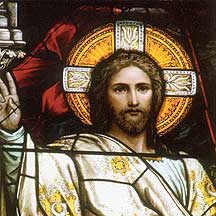







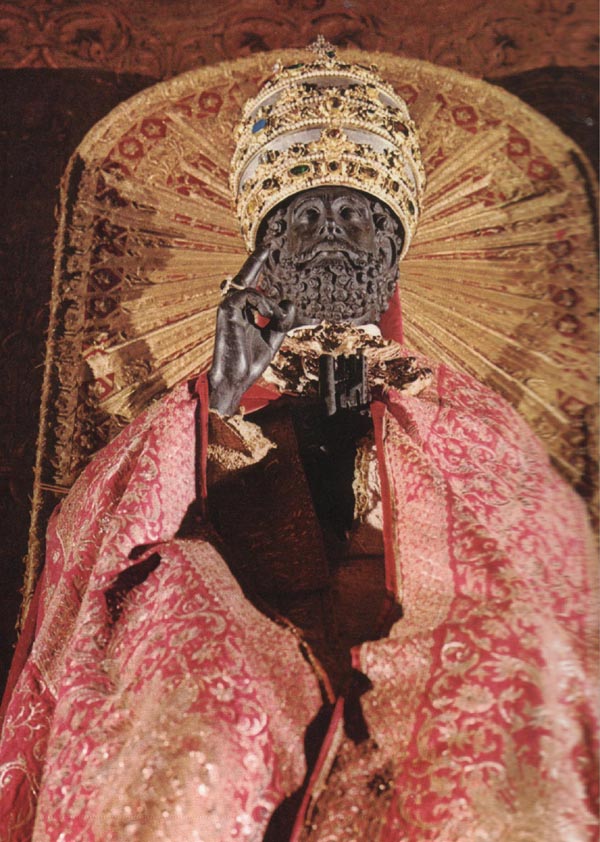
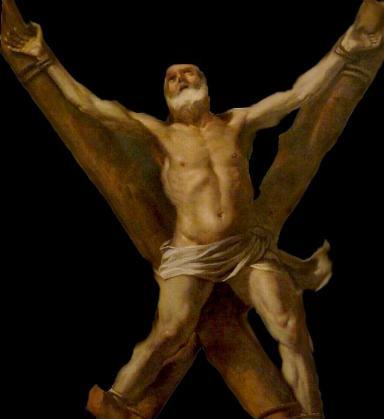




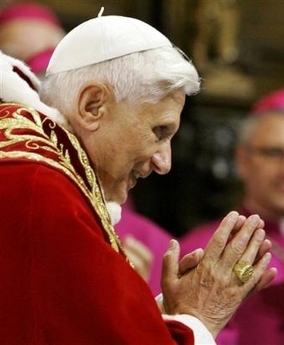






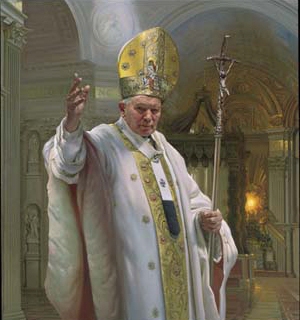
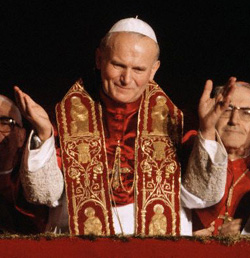
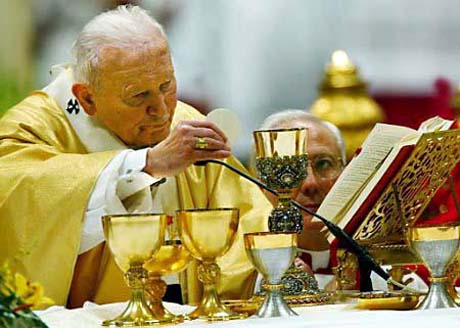







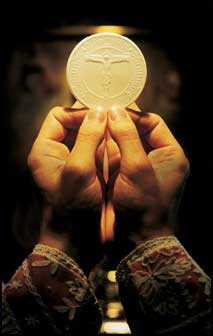
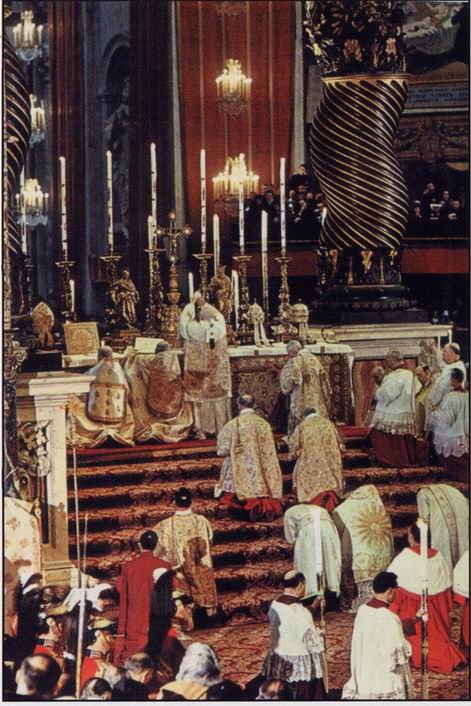

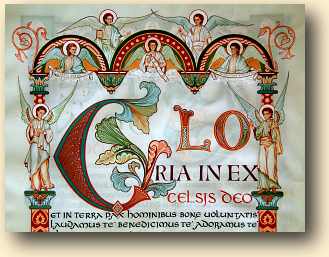

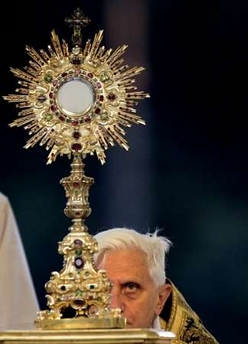


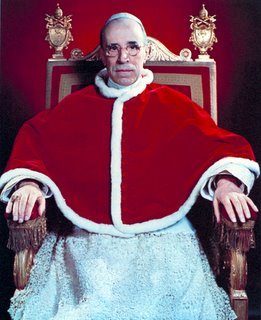




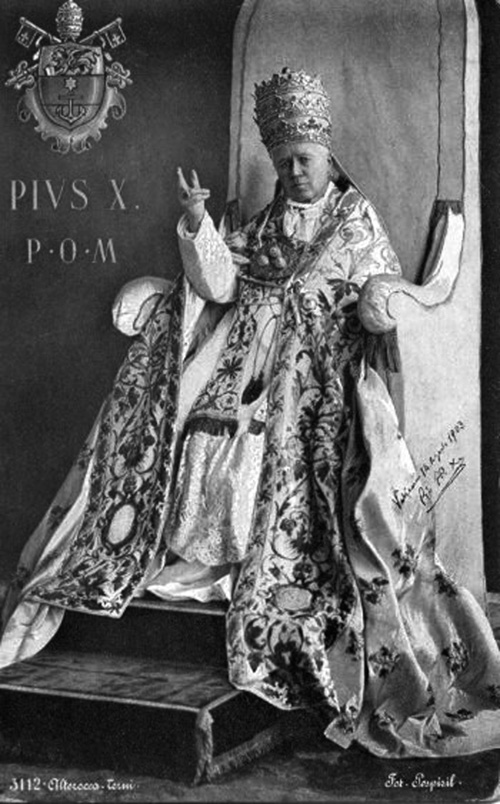



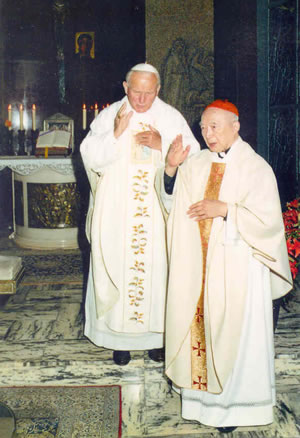






1 comment:
That Mouw article was something; really liked it.
I like reading about the better understanding that comes out of Protestant/Catholic dialogue.
Post a Comment